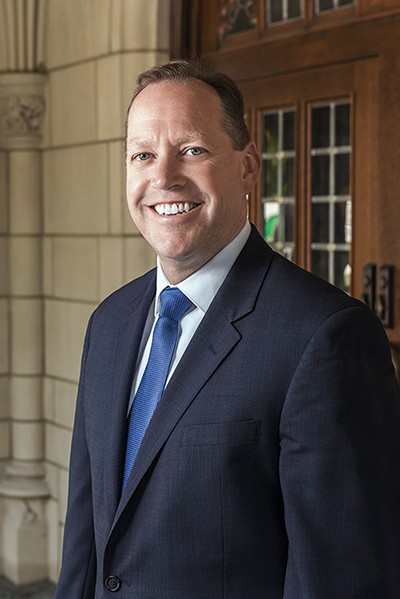At a time of growing concern about the vulnerability of the nation’s information systems, Boston College has teamed with the Federal Bureau of Investigation to hold the first Boston Conference on Cyber Security (BCCS 2017), which aims to tackle the knowledge gap between what computer hackers know and what experts can do to stop them.
Scheduled for this coming March, the conference – which organizers say will be a yearly event – is a partnership between the FBI and the Cybersecurity Policy & Governance master’s degree program at the University’s Woods College of Advancing Studies.
A who’s-who of cybersecurity specialists will appear at the BCCS 2017, including experts from Boston College’s Information Technology Services, the National Security Agency, the US departments of Homeland Security and Defense, State Street Bank, FireEye, Symantec, IBM Security, Mintz Levin, Jones Day, Weil Gotshal, and The MITRE Corp., as well as National Security Council Cybersecurity Director Cheryl Davis, who works at the White House.

“We’re excited to be hosting the BCCS 2017 with the FBI on this incredibly important issue,” said Kevin Powers, founding director of the Cybersecurity Policy & Governance program. “Partnering with the FBI validates our cybersecurity program’s focus, which is to develop cybersecurity leaders to address the varying threats faced by private industry and governments.”
“Combating cyber-crime is one of the FBI’s top priorities because of the direct threat it poses to our national security and economy,” said FBI Assistant Special Agent in Charge Joseph Bonavolonta, who oversees the cyber/counterintelligence program for the FBI’s Boston Division. “The work we do wouldn’t be possible without close collaborative partnerships with the private sector. We hope the Boston Conference on Cyber Security next spring will help everyone get on the same page so we’re better positioned to identify threats, share information and ultimately defeat cyber criminals.”
Powers said the Cybersecurity Policy & Governance program and FBI have been working on the BCCS 2017 itinerary for several months, with an eye to making the conference as informative and meaningful as possible.
“With cyber-attacks in the news every day, there’s a fear out there, but it’s causing a ‘security fatigue’ to it all, because business, government, and consumer users are overwhelmed and sick of being on constant alert,” explained Powers, a former analyst and attorney for the U.S. Justice and Defense departments and U.S. Navy. “Our goal in partnering with the FBI is to highlight why it’s not only in users’ best interests to continue to focus on cybersecurity, but also for the greater good. There needs to be an all-hands-on-deck approach, as the cyber-threats we face today are not going away anytime soon.”
Bonavolonta echoed Powers’ remarks. “Most of America’s cutting-edge technology and equipment is found in the private sector: manufacturers, contractors and academia. Cyber-criminals continue to exploit these networks to steal information. The FBI is committed to finding the criminals behind these attacks, but we can’t do it alone. Conferences like this will help everyone gain a better understanding of the emerging threats as well as our individual roles and responsibilities in defeating them.”
The Cybersecurity Policy & Governance program’s partnership with the FBI is one of more than three dozen governmental and business ties it has formed during its first full year of existence. Others include the Massachusetts State Police, Lockheed Martin, PwC, SkyBox Security, Comtrade, GuidePoint Security, Bank of America, Raytheon, Gartner Consulting, Locke Lord, LLP, and the US departments of Defense, Energy, Homeland Security, Justice, and Treasury.
“Our partners collaborate with us by providing guest lecturers, hosting joint panel discussions and networking events, and providing internships and applied research projects to our students,” said Powers. “It is a true collaborative effort by government, industry and academia – with BC taking the lead – to address and mitigate these cyber-threats.
“When we meet here in March at BCCS 2017, we’ll be discussing emerging technologies, best practices, operations and enforcement, and real-life cyber and national security experiences to help our students and private industry and government leaders address today’s cyber-threats.”
-Sean Hennessey | University Communications



